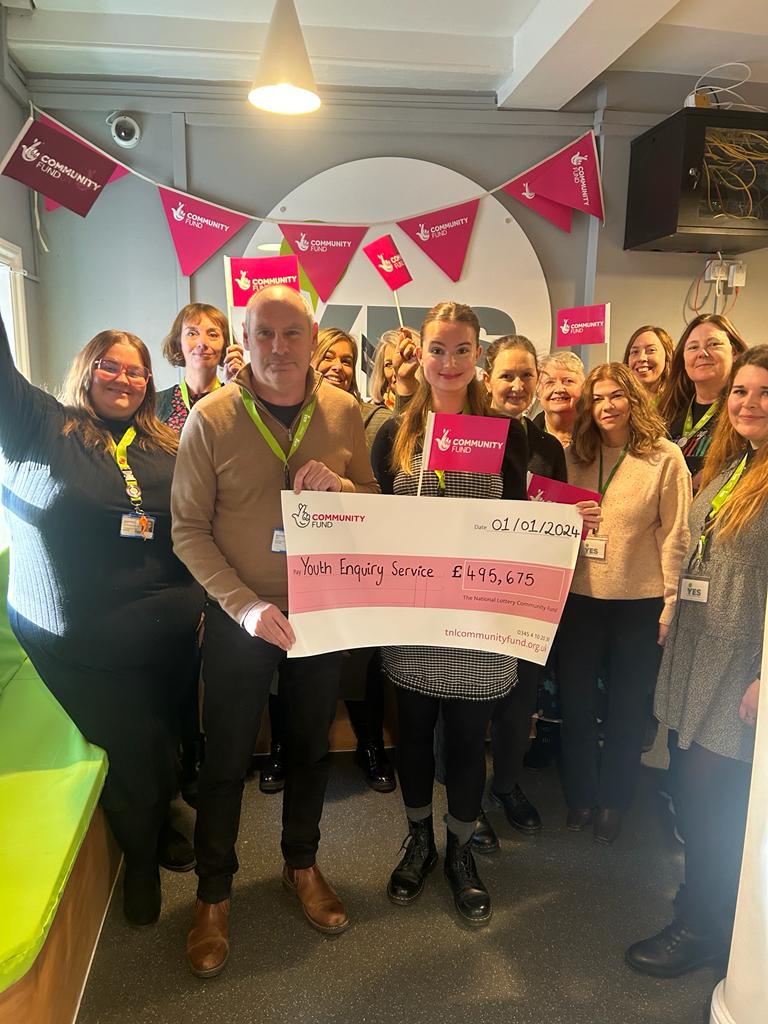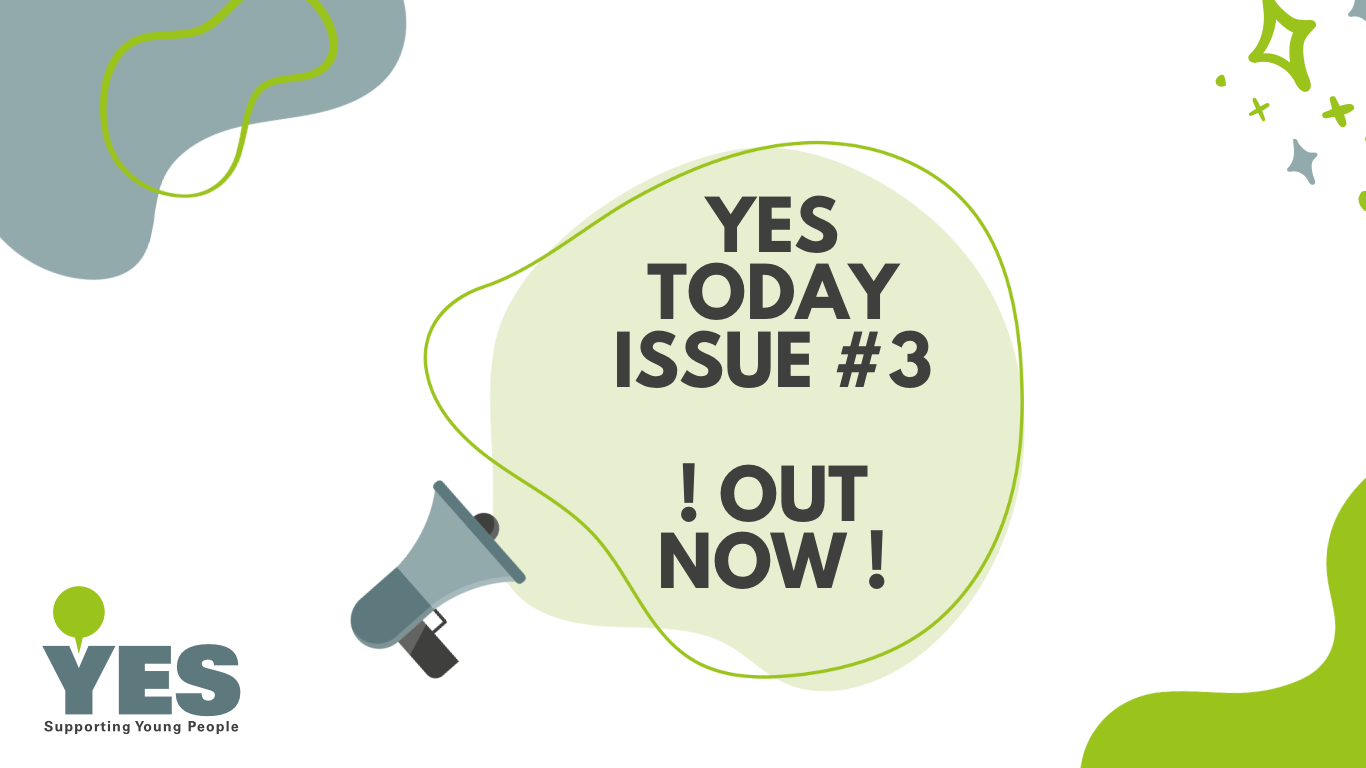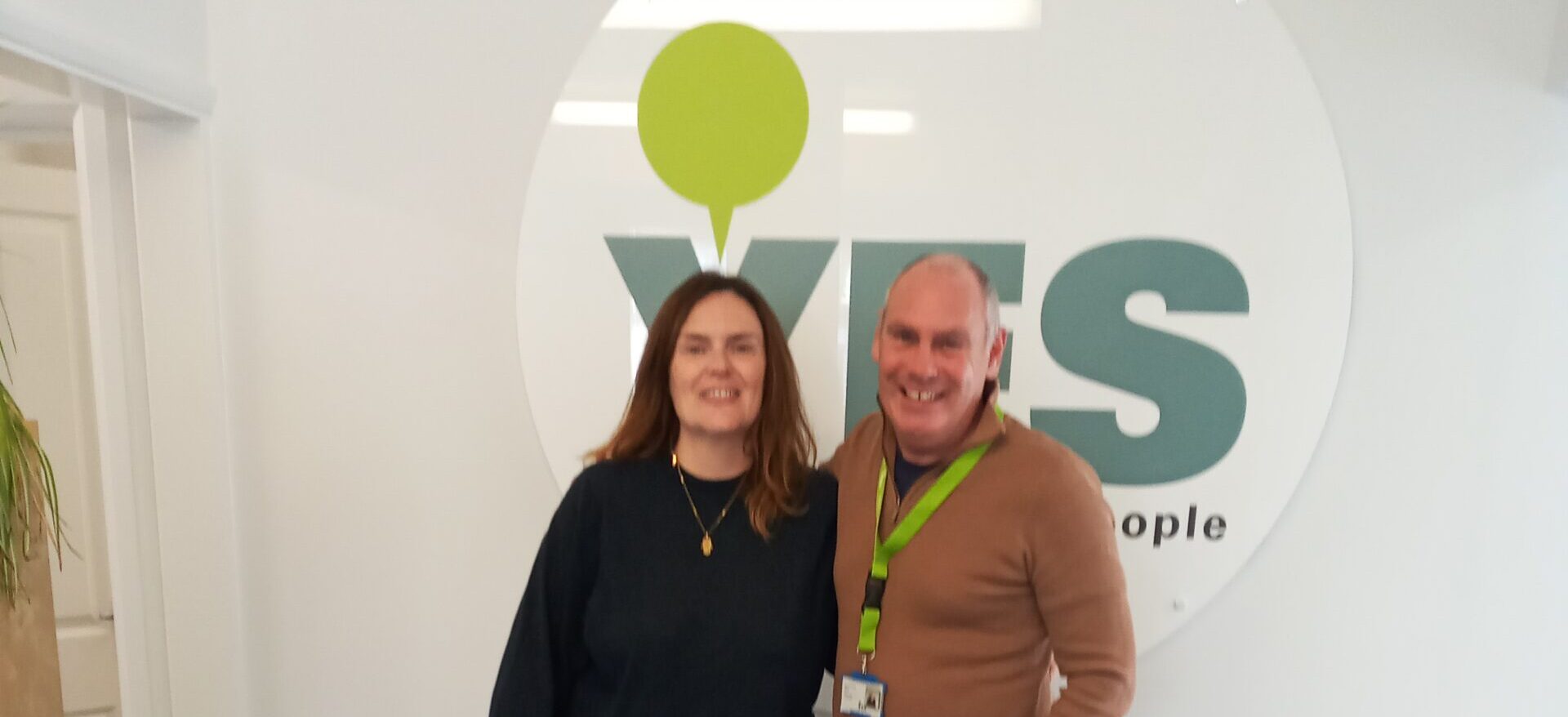The YES GoGreen Project have recently installed a peely bin in our kitchen to encourage our team of staff, volunteers and young people can reduce the amount of food waste that we create, whilst producing more compost to use in the garden.
To celebrate Compost Week (13th-19th March 2023), we have sat down with our fantastic and passionate GoGreen Project Lead Amber to get the Composting 101…
What is Composting?
Composting is a way of making new soil from organic materials that can be collected from the kitchen, fallen leaves and plant material.
It is a natural product of the decomposition process that requires a combination of air, heat and water, assisted by the beneficial microorganisms, worms and fungi naturally found in outdoor spaces.
Why do YES Have a Compost hEAP?
Being an ecological garden, we believe that the gardening process should be waste free and that we should use materials to make compost that are already from the garden and from the kitchen.
We don’t want to bring in and use artificial compost or materials and return goodness to the soil in a sustainable way, by using materials we already have.
Creating our own high quality soil helps us to save money that would have otherwise been spent buying bags of quality soil that we can spend directly on our projects.
Having a compost heap also provides our young people with additional key responsibilities, since it is their job to maintain and turn the heap, as well as regularly empty our peely bin.
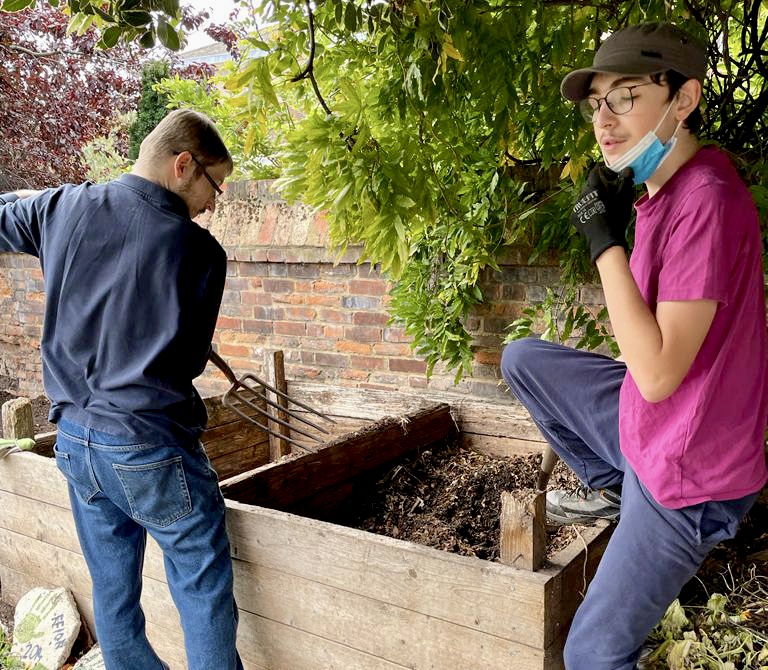
Why should you start composting?
If you are currently growing or thinking about growing plants and produce at home, you’ll always end up with the issue of what to do with your garden waste and rather than chuck that out, it is best to use that in the garden to feed the soil for better quality growth.
The more nutrients you can put back into your garden, the better it will grow. Composting food waste can help to throw away less food and is a good general habit to get into.
By composting your waste, you are reducing your own personal carbon impact by minimising the amount of natural material that ends up in landfill. You can also save a lot of money that would otherwise be spent on high quality soils for your garden.
What sorts of things can go in the compost?
All sorts can be composted, but it largely comes down to raw kitchen waste and plant matter from the garden.
We tend to top ours up with used teabags, a variety of food scraps and almost all our garden waste, with the bin in the kitchen being lined with old newspaper or kitchen roll.
You need to be a little bit careful to not put meats or cooked food in your compost, since this will attract pests and rodents.
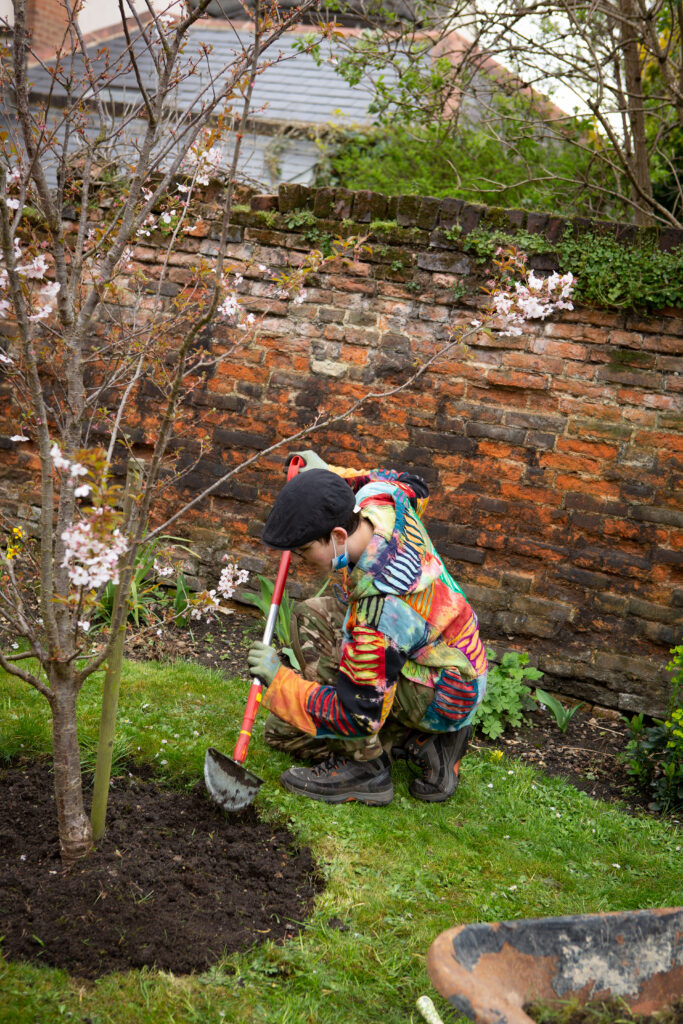
Any tips for a budding compost enthusiast?
To start a compost heap, you need to establish layers of compostable materials. Green material includes grass clipping, fresh plant material and kitchen waste. This is layered up with ‘brown’ material that includes, fallen leaves, newspaper and small twigs and dry debris. You should turn it periodically to ensure that everything gets a good exposure to air and moisture. In the summer, you may want to dampen it, in the winter you may wish to insulate it with an old piece of carpet.
Introducing worms can really help to speed up the process, though they may be enticed to join in naturally if the conditions are set up correctly.
If your space is limited, you may wish to consider vermicomposting with a bin. This involves keeping a population of worms within a warm, damp and dark space and treating them with a rich supply of compostable material. Doing it this way is great because you can even set it up somewhere suitable indoors, such as under the sink!
How can you use your compost?
When your compost is ready, you will want to use it in the springtime by putting a good four inches of compost in your growing beds to top dress your soil. It will act as a mulch and feed your soil, distributed by the worms.
You can also add compost to the soil at any time of the year to suppress the weeds and to lock moisture and nutrients into the soil.
If you are a young person aged 11-25 with an interest in sustainability, why not come to one of our GoGreen Sessions?
Visit our GoGreen page for further information or to make an online referral.
